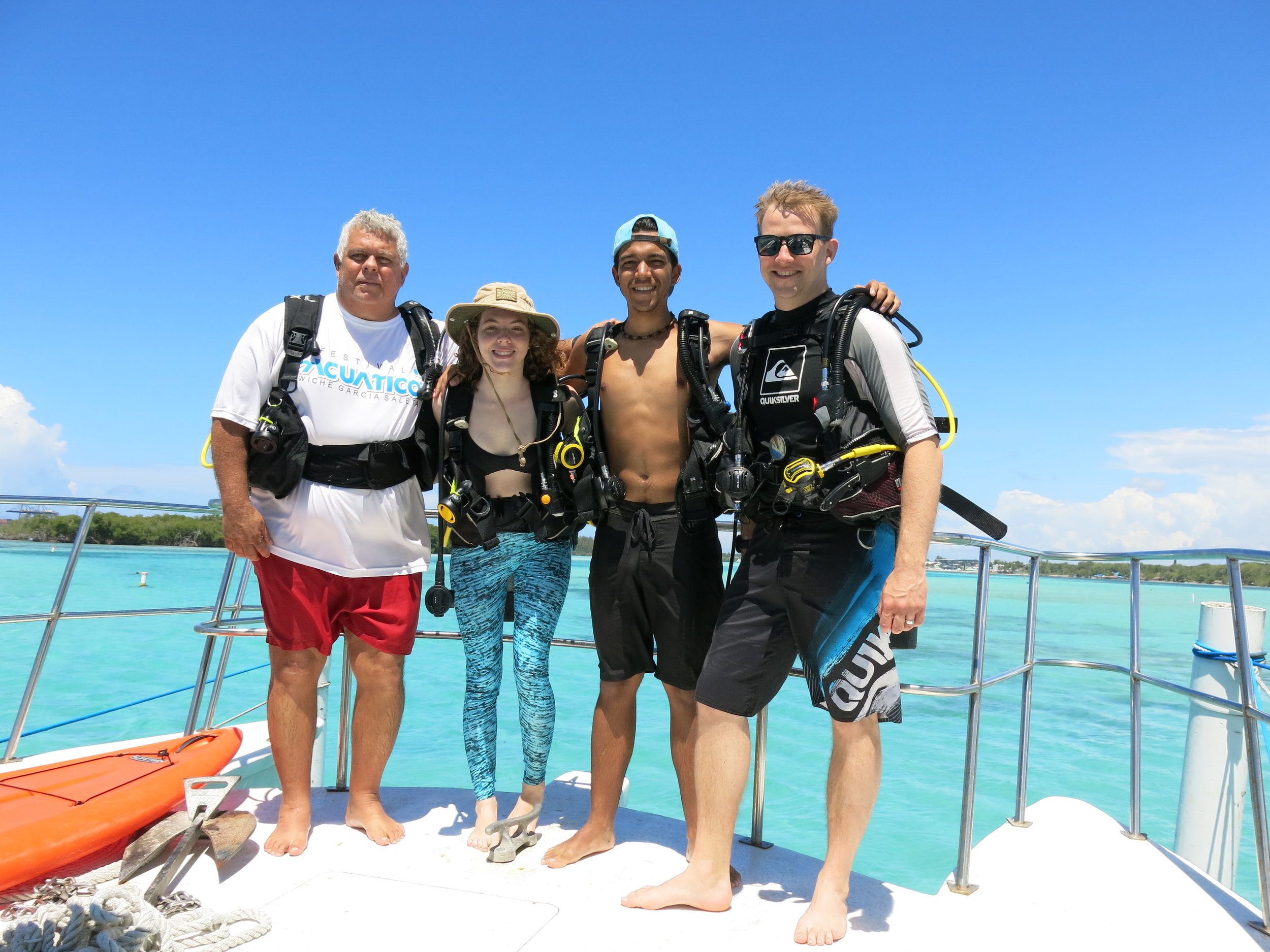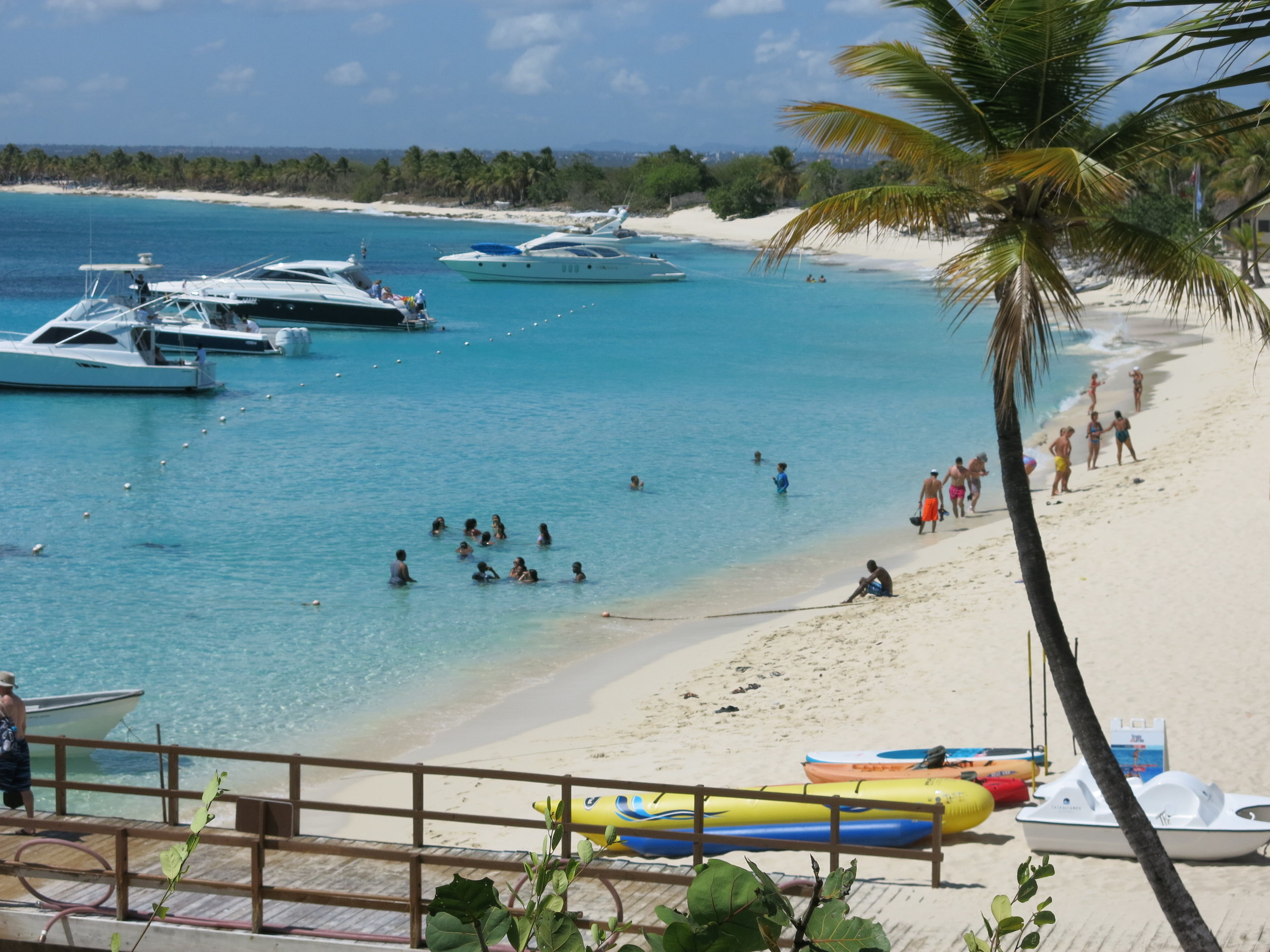I have recently returned from the Caribbean, well the Dominican Republic (DR) to be more specific, from what was a particularly satisfying highlight of my career working for Reef-World. I have been developing and supporting Green Fins since 2008 primarily in south east Asia, the Pacific, and the Indian Ocean. These are the main diving meccas of the world where most of the world’s diving tourists tend to learn, visit, and take their diving holidays. The waters generally have great visibility, the marine life is fantastic and the often the costs can be low too, all very attractive factors. However, other parts of the world such as the Red Sea or the Caribbean are also very popular dive locations and ones that I have not had the pleasure of working in.
Mangroves in Boca Chica, Dominican Republic
And so when I was informed that Reef-World had been successful in securing funding through the Caribbean Environment Programme to introduce Green Fins to the DR, there was a little part of me that was questioning myself if the initiative was transferable enough to go to another region entirely. There was only one way to find out and head out there.
I was training up two members of staff from Reef Check DR, one from the Ministry of Environment and Natural Resources and one diver from the Auxiliary Navy. They were very welcoming and eager to know more about Green Fins and how it could be used to tackle the many issues they are currently experiencing with their 6.3 million annual tourists, many of which dive or snorkel on their reefs.
The new Green Fins Assessors - Chilo, Ana Carolina, Iker and Reef-World's JJ
Before I start any of the training courses that I run, I go for a solo dive trip as a ‘tourist’ to get a better idea of the ground situation and the issues the dive centre are collectively facing. The morning of my dive I woke early and was thinking about the usual questions I ask and was thinking “What if there are no issues to the usual problems? What if they already implement the many suggestions that Green Fins proposes? Could we actually help?” I was already slightly aware of the problems they were facing from the months leading up to the training in the DR, but often the situation on the ground can be very different. In many ways I was hoping that there were no serious issues and that Green Fins would instead be able to focus on different issues to the regular ones such as hazardous waste disposal, anchoring issues, major damage from diver behaviour and instead focus on less problematic issues. Maybe we could have a zero impacting dive centre? Could the DR be the country that all others should follow?
When I finally got to the dive centre, I was immediately able to see the same issues from tourism just from the beach. The years of having millions of tourists visit the beach and reefs had left its trademarks. Litter, plastic, garbage, basura, call it what you want. It was there. When we got to reef, I was pleased to see permanent mooring buoys for the dive boats, but this is apparently not the case everywhere. Still a pleasant surprise.
Isla Catalina - A major tourist attraction.
After a hot trip out and kitting up with my new Fourth Element wetsuit made from recycling fishing nets (ok so that was an obvious plug but seriously, you should check it out. It’s a great comfy neoprene alternative suit), I was pleased to roll off the boat and into the familiar blue. It was great to be back on the reef, but it didn’t take long before the same sights I sadly see in Asia and beyond were also there. I could see the tell-tell sign corals that had been damaged from divers. I then saw a group of other divers coming into contact with the reef and breaking corals and gorgonian fans. I was hoping it would be different.
Fourth Element's Thermocline wetsuit. Made from recycled ‘Ghost’ fishing nets.
During the training weeks and meeting the dive centres and certifying the new Green Fins members, two things were apparent to me. It was obvious that the industry was very similar to other regions in the world, with the same issues and struggles and secondly, that Green Fins was easily replicable and transferable, able to provide solutions and alternatives to the same issues. I have every confidence that with time, Green Fins will be able to alleviate some of these pressures and will able to unite government, business, and NGO’s working in the region to work together on other issues such as enforcement, supporting regulations and encouraging more recycling and reducing the overall footprint of the industry.
Watch this space to see how the team in the DR get on and follow the Facebook page to see the new members in the DR coming onboard.
JJ





